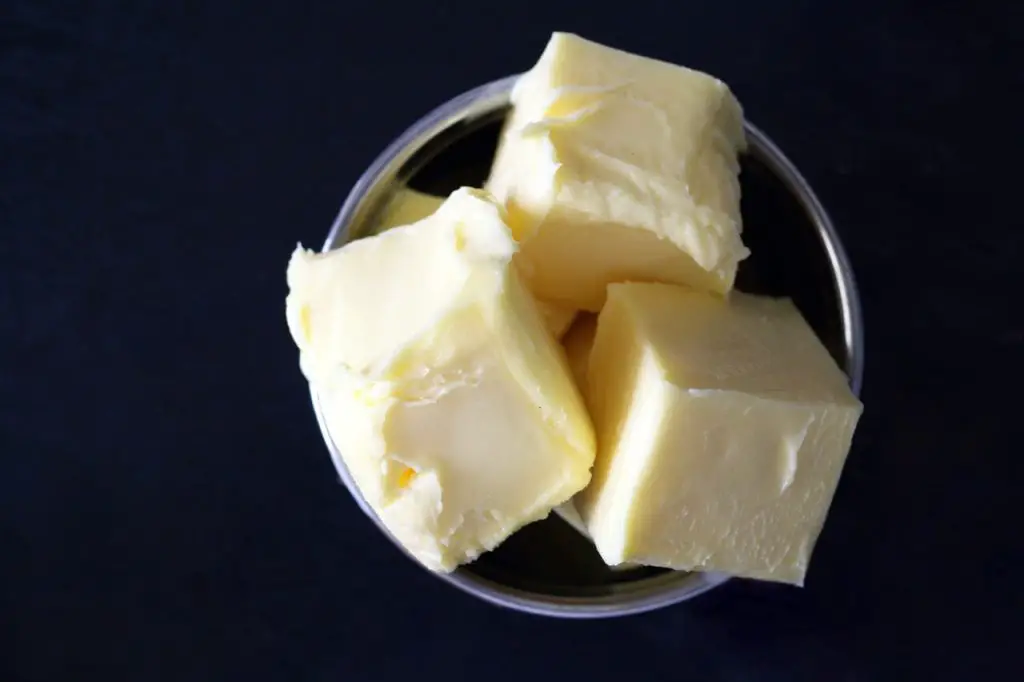Are you a foodie and is steak always your top choice when ordering food at a restaurant? Well, I love it too, but making steak at home is not as easy as it seems to be.
Whenever we think of steak, we think of a juicy piece of meat, which needs to be full of flavors. It has been a subject of discussion among chefs that what is considered to be better when it comes to cooking steak, oil, or butter?
And there is no right answer to it; even the professional chefs seem to have different opinions. It depends on your personal preferences in terms of flavor, smoke point, and ease of cooking.
So, is it better to cook steak in butter or oil?
Let’s find out…
Contents
What Is Smoke Point And What Difference Does It Make For Butter and Oil?
Let’s first talk about what smoke point is and how does it affect your choice of steak. Smoke point is a term used to indicate the temperature at which cooking oil or fat will start to burn or smoke.
At which point, it will wipe out any beneficial, healthy nutrient in your food but also affect the taste and smell of your food your favorite dish. And not to forget your kitchen will also be filled with smoke.
Whenever you are cooking meat, the choice of fat depends heavily on the temperature at which it should be cooked to give the best results.
The same is the case with steaks, which are traditionally cooked at a very high temperature. So, if you do not want your steak to have the smell of burned oil or butter, then the smoke point of chosen oil or butter is a significant factor to be considered.
Apart from the smell of burned oil or butter that may cover your steak, the wrong choice of butter or oil that has inappropriate smoke points might make your cleaning task much more difficult as the burned oil will stick to the base of the pan.
For your convenience and knowledge, the following is the list of smoke points of butter and most commonly used oils.
· Butter has the lowest smoke point, which is just above 300 degrees F.
· Clarified butter has a much higher smoke point of 450 degrees F than the ordinary butter.
· Smoke point of canola oil is slightly higher than that of butter, which 400 degrees F.
· Canola oil, most commonly used for cooking these days, has a smoke pint of 400 degrees Fahrenheit.
· Coconut oil is another popular option for cooking food due to its unique smell, which adds extra rich flavor to your food, and it has a much higher smoke point of 450 F.
· Olive oil comes in various qualities, and each quality has a different smoke point ranging from 350-400 F.
· Avocado oil is not that common, but it is still used by many chefs for cooking, and it has the highest smoke point, which is 520 F.
Clarified Butter vs Normal Butter
As it is clearly evident from the above information, butter has the lowest smoke point compared to all other cooking oils, which means if your pan is heated up, then putting just a small amount of butter will most likely end up burned.
But all those who love the smell and taste of butter do not need to worry as it can still be used, although you will not be able to do any other task while cooking to avoid burning the butter.
However, if you are one of those busy chefs who are always multitasking, there is an alternative to ordinary butter that is clarified butter with a higher smoke point.
Clarified butter is made after taking out all of the water content of plain butter, after which it is strained to get rid of brown milked solids to achieve a more firm cooking fat. It is considered the best alternative for recipes where there is a risk of burning plain butter.
Butter vs Cooking Oils For Steak
Both butter and oil are traditionally used for cooking all kinds of meat, but they have their own advantages and disadvantages, as with every other ingredient.
Let’s see what the pros and cons of different well-liked options used for cooking steak are.
Butter
Butter undoubtedly has the most pronounced flavor as compared to different types of oils used for cooking. But if we consider some other factors, then it may not be the ideal choice for making steak.
Butter is very high in saturated fats, cholesterol, and calories compared to any other kind of oil, which is why it is not considered a healthy option.
Also, as I discussed earlier, due to its low smoke point, it begins to burn even at a shallow temperature.
Margarine
Margarine can be an excellent alternative to plain butter because it is a vegetable oil compared to butter with animal fat.
Due to the very same reason, it has a lower amount of saturated fat yet still has an incredible flavor. Margarine can be found in many different variations in the supermarket, such as salt-free and fat-free, although some of the variations have Trans fat in them.
Another advantage that margarine has over butter is that its smoke point is higher than butter ranging from 410-430 depending upon the type.
Olive Oil
Olive oil comes in a wide variety of types, out of which the most commonly used types are extra virgin olive oil and extra light olive oil.
Olive oil is known for its healthy properties due to the healthy fats that it contains. Additionally, it does not have cholesterol. If we compare olive oil to butter, then there is one downside which is its taste.
Olive oil does not have a very distinct flavor, and on top of that, it is an expensive option among all other types of oils and butter.
I would suggest you use extra light olive oil for cooking steaks as it has a smoke point of 468 degrees F which is very high.
Vegetable Oils
There are plenty of vegetable-based oils available for human consumption, such as canola oil, corn oil, sunflower oil, soybean oil, etc.
Vegetable oils are without any doubt the most expensive option, which is not their only disadvantage. There is another disadvantage of using vegetable oils: they have very little to almost no nutrients because they are processed and refined.
Also, since they have a high smoke point and they will be cooked at a high temperature resulting in a fishy smell, which is the least you would wish for.
Avocado Oil
Avocado is definitely the best possible choice when it comes to a smoke point. It has the highest smoke point of 520 degrees F.
Avocado oil has incredible advantages and is health-conscious and very careful while choosing different kinds of food. Avocado oil can be treated as your heart’s best friend as it is full of polyunsaturated and monounsaturated fats.
Additionally, it is rich in vitamin E as well, but you absolutely do not need to worry about its flavor as it is very mild, and it won’t be noticeable in your steak.
The only downside of this oil is that it is costly, so it is not used as commonly as other oils.
Grapeseed Oil
Have you heard of this oil before? It was new to me as well but let me tell you what advantages come along with this oil.
As the name suggests, Grapeseed oil is made from the seeds of discarded grapes, making it highly rich in omega-6 fatty acids.
Omega 6 fatty acids are known to be extremely beneficial for your mental and physical health. However, they are rarely found in our traditional diet, a fact that makes grapeseed oil an option worth trying.
Peanut Oil
If you are ok with the flavor that comes along with this oil, you should only use it as it has a strong smell of peanuts.
It offers certain health benefits as it is high in monounsaturated fats and has a high smoke point of 450 degrees F. However, many people are allergic to peanuts, and they may not try this gem. Another drawback is that it is very costly.
Final Thoughts
I would conclude by suggesting you choose between oil and butter based on your personal preferences. Some people are more interested in the taste and flavor of steaks than any other thing which you can achieve through butter or margarine.
In contrast, others are more particular about the health benefits provided by different types of oils.
Also, some people, unfortunately, have certain pre-determined medical conditions such as heart disease, high blood pressure, or diabetes which require them to be extra cautious with their diet, and butter is not suitable for them.
They should rather opt for healthy oils, but they would miss out on some really delicate flavors. I hope you found this guide useful and wish you enjoy your meals the way you like!

